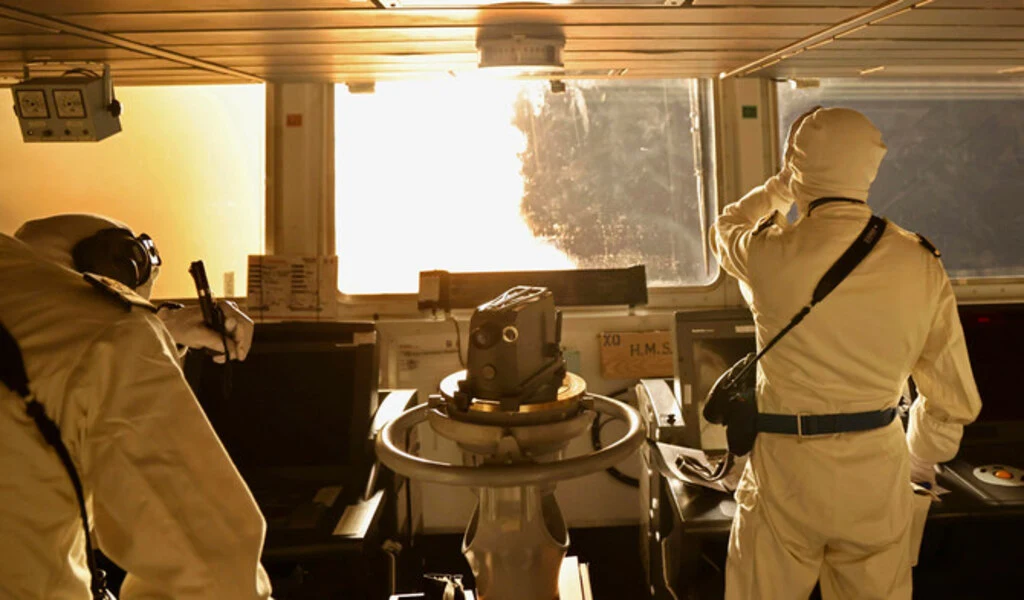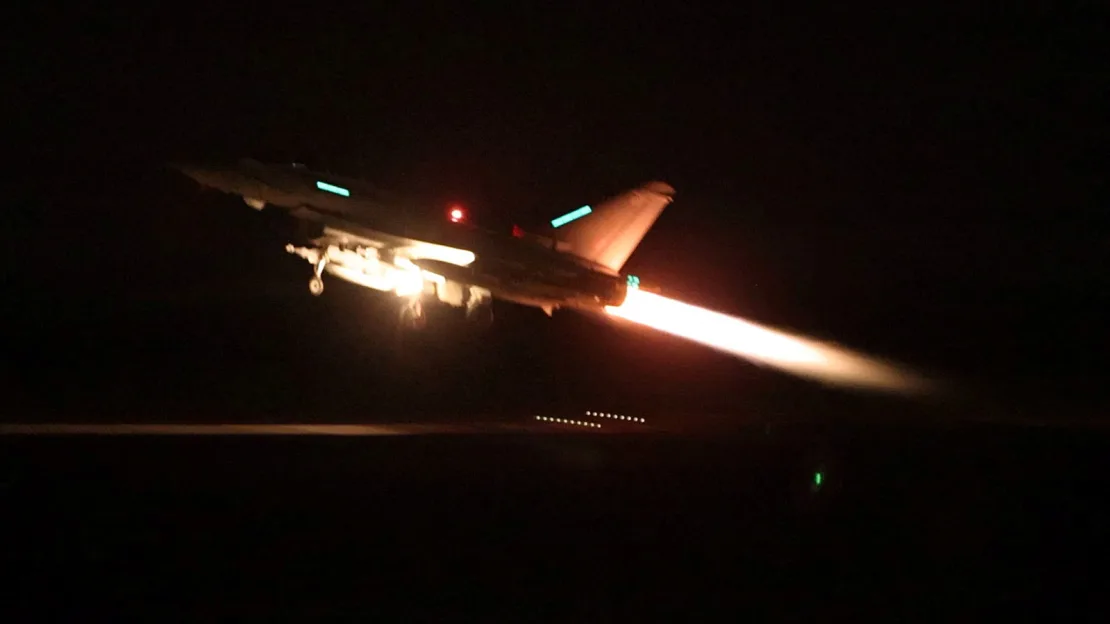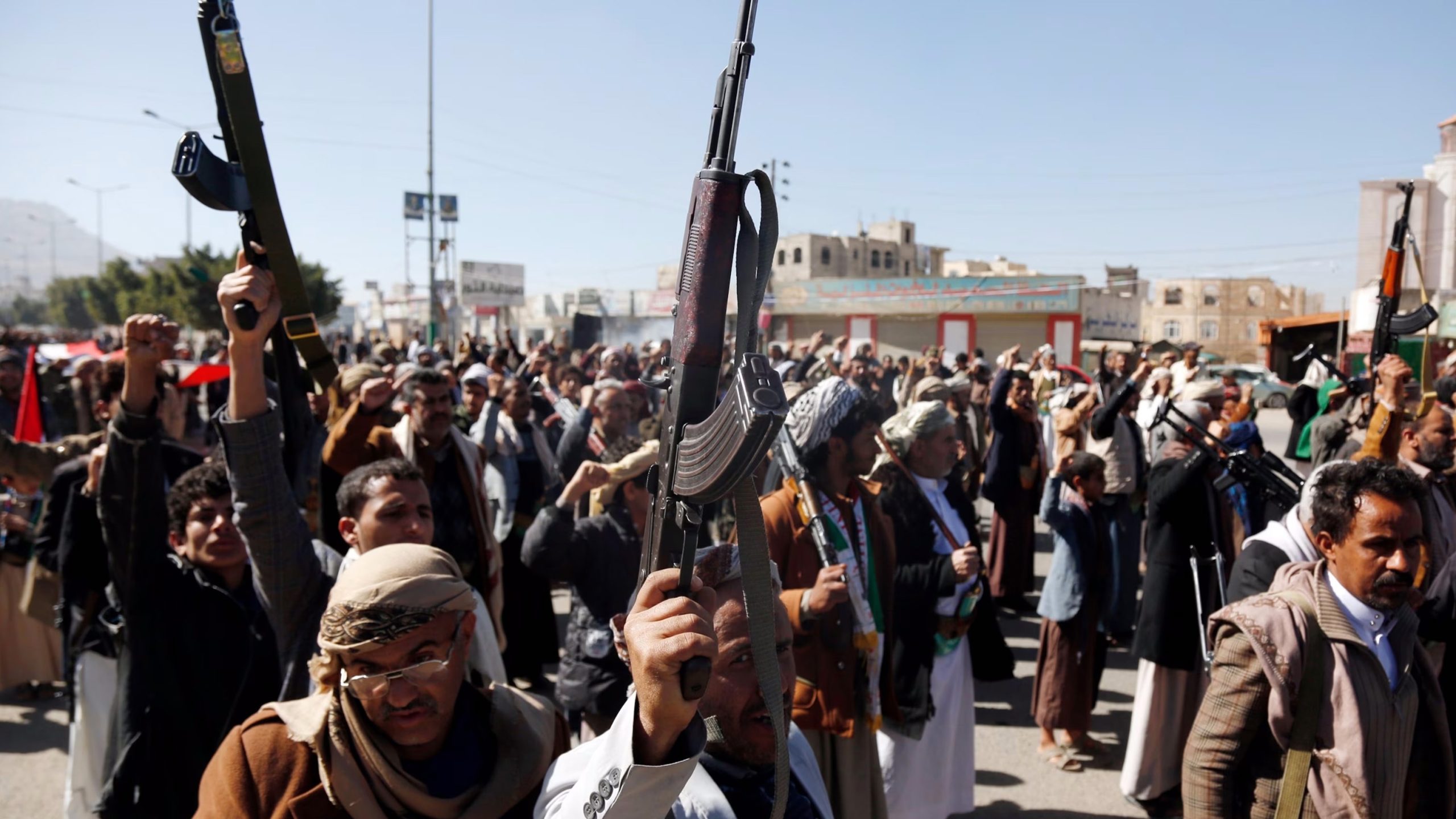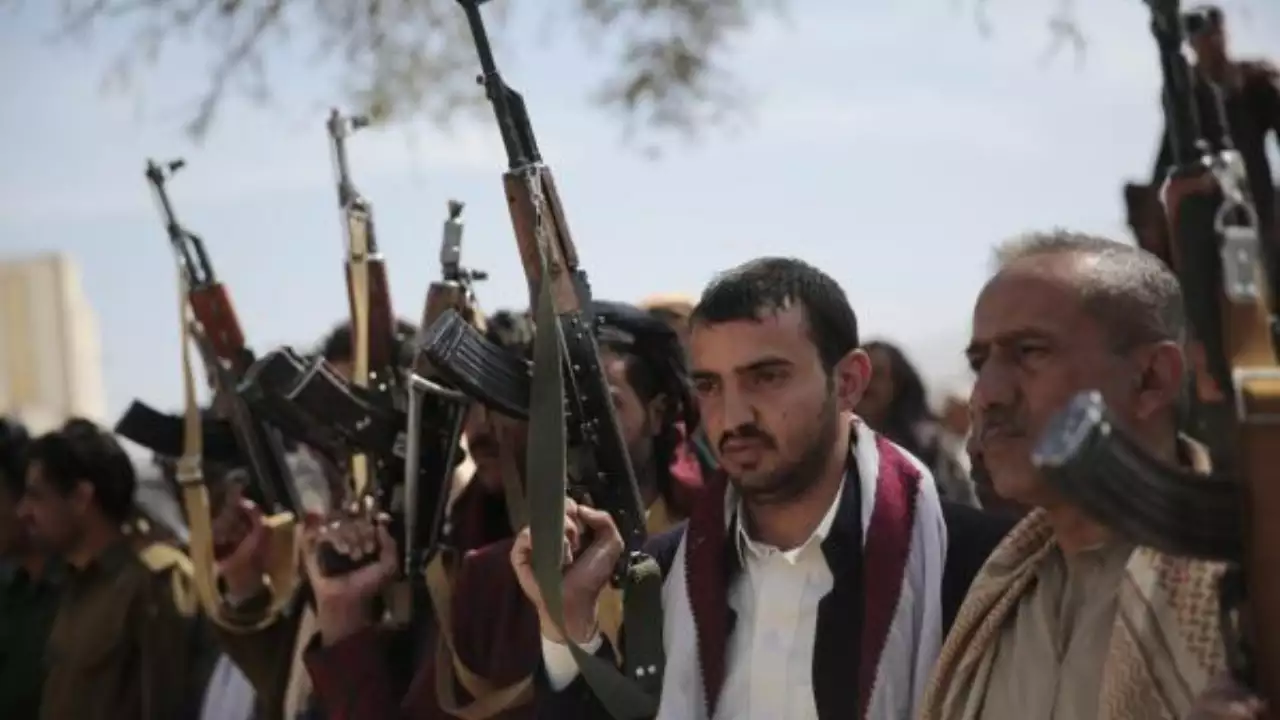(CTN News) – Following warnings from the Biden administration and its allies that the Iran-backed militant group would face the repercussions of their repeated drone and missile attacks on commercial shipping in the Red Sea, the US and UK militaries responded by launching strikes against multiple Houthi targets in Houthi-controlled areas of Yemen on Thursday.
Attacks by the Houthis on international ships in the Red Sea were “unprecedented,” according to President Joe Biden, who justified the strikes.
The president declared in a statement released by the White House that the United States, the United Kingdom, Australia, Bahrain, Canada, and the Netherlands, along with U.S. military forces, had carried out strikes against several targets in Yemen that the Houthi rebels had been using to threaten the freedom of navigation in one of the world’s most important waterways.
To further safeguard American citizens and ensure unfettered global trade, Biden promised he would “not hesitate to direct further measures as necessary.”
According to a statement from US Air Forces Central Commander Lt. Gen. Alex Grynkewich, “deliberate strikes on over 60 targets at 16 Iranian-backed Houthi militant locations, including command and control nodes, munitions depots, launching systems, production facilities, and air defense radar systems.”
The military action involved coalition forces and the United States. His count put the number of precision-guided missiles used at over a hundred, he disclosed.
The strikes demonstrate the increasing global concern about the danger to a vital waterway. The continuation of Houthi attacks on international commerce forced the coalition to act, after the US had avoided direct strikes on Yemen for weeks due to concerns about escalating tensions in the region, which are already seething due to the Israel-Hamas war.
This is the first documented hit against the Houthis in Yemen, while the US has struck Iranian proxies in Iraq and Syria since the war in Gaza broke out.
Fighter planes and Tomahawk missiles were responsible for the attacks. According to a US official who spoke with CNN, the Houthis’ persistent attacks on ships in the Red Sea were the reason behind the targeting of over a dozen locations by missiles launched from various platforms, including air, surface, and sub.
In this category were radar systems, locations for storing and launching drones, ballistic missiles, and cruise missiles.
A second US official confirmed that the attack on Yemen included the guided missile submarine USS Florida, which entered the Red Sea on November 23. The submarine, according to the official, launched Tomahawk land-attack missiles, just like the surface ships that were involved in the attack.
While he was unable to give a precise percentage of Houthi assets destroyed in the strikes, a senior military officer told reporters on Thursday evening that it was “significant.” To destroy the targets “and also to minimize collateral damage,” he said, using precision guided weapons.
Civilian population centers were in no way our intended targets. The official clarified that the goal was to target particular capabilities in particular locations using precise weapons.
Although preparations have been going on for some time, a senior US official told CNN that the Houthi attacks on Red Sea commerce on Tuesday were the last straw that led to Biden giving the US the go-ahead to launch Thursday’s strikes.
Secretary of Defense Lloyd Austin is still in the hospital after problems during prostate cancer surgery, which is why the strikes have occurred. The strikes were ordered and monitored in real-time from the hospital “with a full suite of secure communications,” according to a senior Defense official.
For weeks, Biden has considered the possibility of launching strikes against Houthi strongholds in Yemen in light of the growing Middle Eastern crisis.
He has been reluctant to authorize direct action out of concern that he could be more intimately involved in a growing confrontation, which US officials think could be Iran’s ultimate goal.
However, the consistent targeting of international trade lines in the southern Red Sea by the Houthis was deemed untenable by the White House. Because of the attacks, several of the world’s biggest shipping corporations have decided to circumnavigate Africa, which adds thousands of kilometers to their international shipping routes, rather than use the canal.
Pentagon spokesperson Maj. Gen. Pat Ryder stated that Iran “has a role to play” in urging the Houthis to cease their “reckless, dangerous, and illegal activity” in the hours leading up to Thursday’s strike. He threatened “consequences” if they didn’t.
For weeks, US Navy ships in the region have intercepted and shot down numerous drones and missiles launched by the Houthis, a Shia political and military group backed by Iran that is engaged in a civil war in Yemen against a coalition supported by Saudi Arabia.
According to Hussein al-Ezzi, the Houthi’s deputy foreign minister, Yemen was the object of a “massive aggressive assault.” Ahead of any US assault on Yemen, Houthi leader Abdul Malek Al-Houthi said in a speech he gave on Thursday that “much more” than targeting US ships at sea will be the response.
The Pentagon has not observed any signals of retaliation by the Houthis as of Thursday night, according to the senior military official.
According to a high-ranking US government official, additional measures may be taken against the Houthis.
The government official warned that this was far from the final statement on the matter. We will let you know when we have more to share and things to accomplish.
“If it doesn’t stop, there will have to be consequences,” US Secretary of State Antony Blinken warned Thursday while touring in the region. And the worst part is that it still isn’t over.
Despite warning of “a lot of danger points,” Blinken stated that he does not think the battle in Gaza is becoming a broader confrontation. While in the area, Blinken paid a visit to Bahrain, which is the home of the Fifth Fleet and US Naval Forces Central Command.
During his visit to the Middle East, Blinken conveyed to regional officials the importance of viewing any military action by the United States against the Houthis as defensive rather than escalatory, according to a senior official from the State Department.
United Nations Security Council resolution passed by Japan and the United States on Wednesday denounces “in the strongest terms the at least two dozen Houthi attacks on merchant and commercial vessels since November 19, 2023” and demands “that the Houthis immediately cease all such attacks.”
The resolution was supported by eleven nations. Five did not vote, two of which were from Russia and China. According to a Western diplomat who spoke with CNN, the US did agree to some of China’s linguistic demands on the resolution.
The United States has carried out over 400 airstrikes in Yemen since 2002, as reported by the Council on Foreign Relations. Therefore, the current strikes are not unique.
Officials in Yemen have expressed worry about the potential consequences of attacking the Houthis. The Houthi attacks on commercial and merchant ships have been orchestrated by Iran, according to declassified US intelligence. Iran has even supplied details about trade vessels using the river.
An American official has informed CNN that the Biden administration regards the Houthi-Saudi truce as one of its greatest foreign policy successes, and the US is wary of disrupting the agreement if it takes direct action inside Yemen.
There were some in the US government who were worried that if they attacked the Houthis in Yemen, it would lead to a drawn-out confrontation between the US and the Iranian proxy group, something the group really wanted.
Despite Biden’s best efforts, the Houthis persisted in attacking commercial and merchant ships making their way through the Red Sea.
In a show of self-defense, US Navy helicopters shot down three Houthi boats around New Year’s, killing everyone on board. This marked a turning point in the conflict.
As a result of this first contact between American forces and the Houthis since the conflict’s inception, Vice President Biden called a confidential meeting of his national security staff while on vacation in the Virgin Islands to discuss the situation.
The Houthis “will bear the responsibility of the consequences should they continue to threaten lives, the global economy, and free flow of commerce in the region’s critical waterways,” according to that joint statement made on January 3.
Biden and his team understood the remark would effectively commit them to a stronger reaction in the event that the Houthi attacks persisted—something that many officials privately suspected would happen—even though they didn’t call it a red line.
Hours subsequent to the joint statement’s issuance, the Houthis attacked commercial shipping channels using an unmanned surface drone.
Three destroyers from the United States Navy—the USS Dwight D. Eisenhower, which is manned by Navy F/A-18s—and a destroyer from the United Kingdom, the HMS Diamond, shot down twenty-one missiles and drones on Tuesday, in what was arguably the biggest Houthi onslaught to that point. The attack did not result in any damage to ships and no injuries were reported.
After the missile barrage, a senior administration source informed CNN that Biden ordered his national security team to attack Houthi facilities in Yemen. An American military vessel was also attacked, according to the official. The attack was directed towards a US commercial vessel.
The strikes occurred on Thursday night after Biden ordered Defense Secretary Lloyd Austin to respond.
At least 27 strikes have been carried out by the Houthis since November 19.While the US and its allies have been dealing with the Houthis’ continuous attacks, coalition and US forces in Iraq and Syria have been the target of at least 131 attacks since October 17.
Among these attacks were three that targeted installations associated with Iran’s Islamic Revolutionary Guard Corps and other proxy forces.
According to an official, a member of the Iranian proxy group Harakat al-Nujaba had “US blood on his hands” in Iraq. The United States recently attacked this individual.
A large number of the commercial ships, however, have never been associated with Israel. Last Monday, US Navy Central Command Commander Vice Adm. Bradley Cooper stated that 55 nations are believed to have “direct connections” to the attacked ships.









